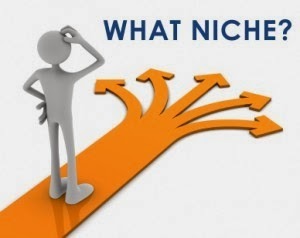Like every writer who starts out, I was told I should have an Internet presence, an easily recognizable brand. That's why I started this blog back in 2009 as a way to brand myself. I also got on Facebook and Twitter and
Pinterest and scores of other sites.
On day one, I had one reader visit my blog: my husband. On day two, my kids joined in, I had three readers. Today, 419 posts later, I am nearing the 400 mark of daily visits and 10,000 visits per month. Lately I started a mirror blog on Wordpress with the same posts (see
here) because I have followers over there who hadn't realized that my main blog is here. For some obscure reason, the
Word Press and
Blogger universes are separate.
If I look at my Google stats, I'm read everywhere, from Canada to China, though most of my traffic comes from the States. My bounce rate is very low, time spent on the site is fairly high (5 to 6 minutes) and some 20 percent of my visitors return. Inexplicably, traffic fluctuates wildly, the
Alexa ranking can go as high as 2000k and as low 200 k. Still, not too bad, considering a total of more than 150 million blogs worldwide. That mind-boggling number comes from WP magazine, see
here, with
an estimated 170,000 new blogs added everyday! A tsunami of blogs. Such numbers make one wonder whether there aren't too many blogs around...
So was it worth the effort? Because, don't kid yourself, to maintain a blog is a BIG effort. Some people have real short posts and can do it everyday. Unfortunately, it doesn't work for me. I always have tons of things to say about everything and then, there's a bigger problem: like a lot of writers, I don't fit into a mold. Yet, to succeed, you need to do
niche blogging. And Google's newly launched "semantic search" system (I posted about it, see
here) works best
if you blog in a niche and turn yourself into an "expert" with a resulting "author page" that stands out.
If you don't blog in a niche, the danger is that Google bypasses you, your blog doesn't turn up in searches and you get forgotten in your corner.
That worries me.

It means that if you want to stand out, Google forces you to stay in your niche. Thinking "out of the box" is not allowed! That's tough for writers (like me) who are broadly interested in the human condition. Posting about all sorts of different subjects weakens your status as an expert: for Google, you can't be an expert in a vast array of things.
Because Google's algorithms confuse expertise with critical thinking. The two are not the same. You can be an expert in your domain and a very poor critical thinker. The ability for critical thinking depends more on
how you appraise a situation than on
how much you know about it.
Go tell Google computers!
Looking at my blog as a whole, the experience has been positive: my readership has grown steadily overtime and lately I'm getting more and more comments. That's a real satisfaction and I'm thankful to those of you who have taken the time to comment. But I worry. Have I done something wrong? Like any writer, I aspire to get my fiction read by the greatest number. Does that mean I should do like my fellow writers, discuss books and writing problems etc?
The trouble is I don't often feel like "talking shop". My interests are varied and to talk shop, there are plenty of wonderful writers' and readers' communities like
Goodreads,
Shelfari,
TheNextBigWriter,
ReadWave,
Authonomy etc and I've joined them all, at one point or another.
It all boils down to one question: who should the blog be for? I believe it's a two-way street. A blogger
needs an audience. You always write for somebody, to either convince or entertain that person or both. You need to ask yourself what kind of audience inspires you and stimulates you - and write for that audience. Because if you're not stimulated, you can't write. At least, that's the way it is for me. If my blog is not exclusively aimed at other writers that's because I just can't limit myself to other writers. When I blog, I have in mind all sorts of people and their problems and not just writers and writing. Sure, writers interest me too. The upheavals caused by the digital revolution make publishing a particularly fascinating subject and I want to know as much as I can about it and share that knowledge. But for me, the world doesn't end there.
Am I wrong? I guess only time will tell...when my blog hits the 10,000 visits a day mark!
I have a question for you and I'd be grateful if you could drop a word in the comments below. Am I right to go out in all directions or should I focus on a niche and write only about books, the publishing industry, writing techniques? Do you enjoy reading my posts that are never twice about the same subject or would you prefer to visit my blog knowing exactly what you are going to find? As a writer, are you also tempted to blog beyond any given "niche"? After all, writers are observers of the "human condition", and that means their interests cannot be contained in a "niche"...
Photo credit: Visit Carol Manser's post "How to Choose a Good Niche Blog Topic", on My Second Million blog, click here. Related articles
 The 15 World Top Websites in Alexa Ranking
The 15 World Top Websites in Alexa Ranking(savvybookwriters.wordpress.com)
 How To Drive Traffic To Your Blog In 2014: Sites That Help You Gain Readers
How To Drive Traffic To Your Blog In 2014: Sites That Help You Gain Readers(blogs.sap.com)
 7 Steps for Building a Profitable Niche Blog
7 Steps for Building a Profitable Niche Blog(bloggingtips.com)










 newest »
newest »
 newest »
newest »
 Joseph wrote: "Claude, I have been absent for a while due to an incredible writing and promotion schedule. I have missed reading your blog as it is always informative, erudite, and stimulating. As with you, I hav..."
Joseph wrote: "Claude, I have been absent for a while due to an incredible writing and promotion schedule. I have missed reading your blog as it is always informative, erudite, and stimulating. As with you, I hav..."

















I approach my own blog from a narrower perspective than I would like. I began my Everyday Heroes blog with the goal of offering readers a glance at my writing style and, at the same time, offering something that linked to a common theme throughout all of my novels: How a good man or woman reacts to negative events. My protagonists are never super heroes who can leap tall buildings in a single bound. They are people who can summon up courage when confronted with obstacles and/or danger just as people do so in real life.
I believe for a blog to be an effective driver of readers to a writer's books it must have a tie in to those books. A blog must also be published frequently enough to become recognizable but infrequently enough to not become boring or even aggravating. Multiple daily blog postings, or even a daily posting fall into the latter categories. Even a weekly blog that becomes mundane can become counter productive. I write my Everyday Heroes blog on a monthly basis, and try to add diversity to my subject matter by making my heroes either a man, woman, animal, organization, etc.
Another no-no of blogging, in my opinion, is the fatuous post about the author-- the self-serving, self-aggrandizing, self-highlighting message that informs the reader about what the author had for breakfast. This stuff may be ok on Facebook but it's not meaty enough for a blog.
In any case, it's good to be back. Regardless of the subject matter, I thoroughly enjoy your blog.